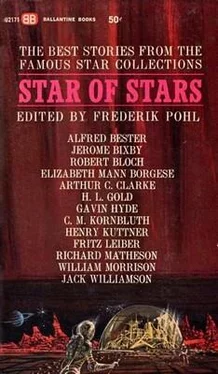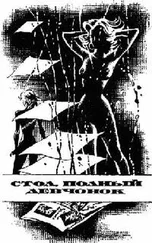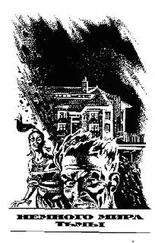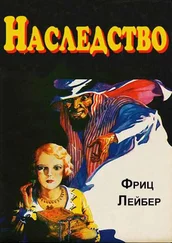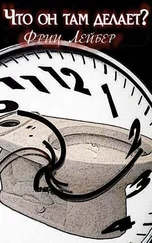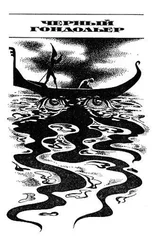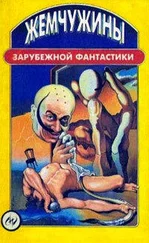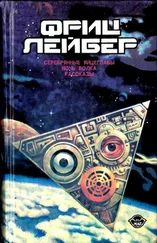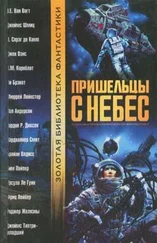FRITZ LEIBER
Space-time for Springers
Gummitch was a superkitten, as he knew very well, with an I.Q. of about 160. Of course, he didn't talk. But everybody knows that I.Q. tests based on language ability are very one-sided. Besides, he would talk as soon as they started setting a place for him at table and pouring him coffee. Ashurbanipal and Cleopatra ate horsemeat from pans on the floor and they didn't talk. Baby dined in his crib on milk from a bottle and he didn't talk. Sissy sat at table but they didn't pour her coffee and she didn't talk—not one word. Father and Mother (whom Gummitch had nicknamed Old Horsemeat and Kitty-Come-Here) sat at table and poured each other coffee and they did talk. Q.E.D.
Meanwhile, he would get by very well on thought projection and intuitive understanding of all human speech—not even to mention cat patois, which almost any civilized animal could olav by ear. The dramatic monologues and Socratic dialogues, the quiz and panel-show appearances, the felidological expedition to darkest Africa (where he would uncover the real truth behind lions and tigers), the exploration of the outer planets—all these could wait. The same went for the books for which he was ceaselessly accumulating material: The Encyclopedia of Odors, Anthropofeline Psychology, Invisible Signs and Secret Wonders, Space-Time for Springers, Slit Eyes Look at Life, et cetera. For the present it was enough to live existence to the hilt and soak up knowledge, missing no experience proper to his age level—to rush about with tail aflame.
So to all outward appearances Gummitch was just a vividly normal kitten, as shown by the succession of nicknames he bore along the magic path that led from blue-eyed infancy toward puberty: Little One, Squawker, Portly, Bumble (for purring not clumsiness), Old Starved-to-Death, Fierso, Loverboy (affection not sex), Spook and Catnik. Of these only the last perhaps requires further explanation: the Russians had just sent Muttnik up after Sputnik, so that when one evening Gummitch streaked three times across the firmament of the living room floor in the same direction, past the fixed stars of the humans and the comparatively slow-moving heavenly bodies of the two older cats, and Kitty-Come-Here quoted the line from Keats:
Then felt I like some watcher of the skies When a new planet swims into his ken; it was inevitable that Old Horsemeat would say, "Ah—Catnik!"
The new name lasted all of three days, to be replaced by Gummitch, which showed signs of becoming permanent.
The little cat was on the verge of truly growing up, at least so Gummitch overheard Old Horsemeat comment to Kitty-Come-Here. A few short weeks, Old Horsemeat said, and Gummitch's fiery flesh would harden, his slim neck thicken, the electricity vanish from everything but his fur, and all his delightful kittenish qualities rapidly give way to the earth-bound singlemindness of a tom. They'd be lucky, Old Horsemeat concluded, if he didn't turn completely surly like Ashurbanipal.
Gummitch listened to these predictions with gay unconcern and with secret amusement from his vantage point of superior knowledge, in the same spirit that he accepted so many phases of his outwardly conventional existence: the murderous sidelong looks he got from Ashurbanipal and Cleopatra as he devoured his own horsemeat from his own little tin pan, because they sometimes were given canned catfood but he never; the stark idiocy of Baby, who didn't know the difference between a live cat and a stuffed teddy bear and who tried to cover up his ignorance by making goo-goo noises and poking indiscriminately at all eyes; the far more serious—because cleverly hidden—maliciousness of Sissy, who had to be watched out for warily—especially when you were alone—and whose retarded—even warped —development, Gummitch knew, was Old Horsemeat and Kitty-Come-Here's deepest, most secret, worry (more of Sissy and her evil ways soon); the limited intellect of Kitty-Come-Here, who despite the amounts of coffee she drank was quite as featherbrained as kittens are supposed to be and who firmly believed, for example, that kittens operated in the same space-time as other beings—that to get from here to there they had to cross the space between —and similar fallacies; the mental stodginess of even Old Horsemeat, who although he understood quite a bit of the secret doctrine and talked intelligently to Gummitch when they were alone, nevertheless suffered from the limitations of his status—a rather nice old god but a maddeningly slow-witted one.
But Gummitch could easily forgive all this massed inadequacy and downright brutishness in his felino-human household, because he was aware that he alone knew the real truth about himself and about other kittens and babies as well, the truth which was hidden from weaker minds, the truth that was as intrinsically incredible as the germ theory of disease or the origin of the whole great universe in the explosion of a single atom.
As a baby kitten Gummitch had believed that Old Horsemeat's two hands were hairless kittens permanently attached to the ends of Old Horsemeat's arms but having an independent life of their own. How he had hated and loved those two five-legged sallow monsters, his first playmates, comforters and battle-opponents!
Well, even that fantastic discarded notion was but a trifling fancy compared to the real truth about himself!
The forehead of Zeus split open to give birth to Minerva. Gummitch had been born from the waist-fold of a dirty old terrycloth bathrobe, Old Horsemeat's basic garment. The kitten was intuitively certain of it and had proved it to himself as well as any Descartes or Aristotle. In a kitten-size tuck of that ancient bathrobe the atoms of his body had gathered and quickened into life. His earliest memories were of snoozing wrapped in terrycloth, warmed by Old Horsemeat's heat. Old Horsemeat and Kitty-Come-Here were his true parents. The other theory of his origin, the one he heard Old Horsemeat and Kitty-Come-Here recount from time to time—that he had been the only surviving kitten of a litter abandoned next door, that he had had the shakes from vitamin deficiency and lost the tip of his tail and the hair on his paws and had to be nursed back to life and health with warm yellowish milk-and-vitamins fed from an eyedropper—that other theory was just one of those rationalizations with which mysterious nature cloaks the birth of heroes, perhaps wisely veiling the truth from minds unable to bear it, a rationalization as false as Kitty-Come-Here and Old Horsemeat's touching belief that Sissy and Baby were their children rather than the cubs of Ashurbanipal and Cleopatra.
The day that Gummitch had discovered by pure intuition the secret of his birth he had been filled with a wild instant excitement. He had only kept it from tearing him to pieces by rushing out to the kitchen and striking and devouring a fried scallop, torturing it fiendishly first for twenty minutes.
And the secret of his birth was only the beginning. His intellectual faculties aroused, Gummitch had two days later intuited a further and greater secret: since he was the child of humans he would, upon reaching this maturation date of which Old Horsemeat had spoken, turn not into a sullen torn but into a godlike human youth with reddish golden hair the color of his present fur. He would be poured coffee; and he would instantly be able to talk, probably in all languages. While Sissy (how clear it was now!) would at approximately the same time shrink and fur out into a sharp-clawed and vicious she-cat dark as her hair, sex and self-love her only concerns, first harem-mate for Cleopatra, concubine to Mhurbanipal.
Exactly the same was true, Gummitch realized at once, for all kittens and babies, all humans and cats, wherever they might dwell. Metamorphosis was as much a part of the fabric of their lives as it was of the insects'. It was also the basic fact underlying all legends of werewolves, vampires and witches' familiars.
Читать дальше
